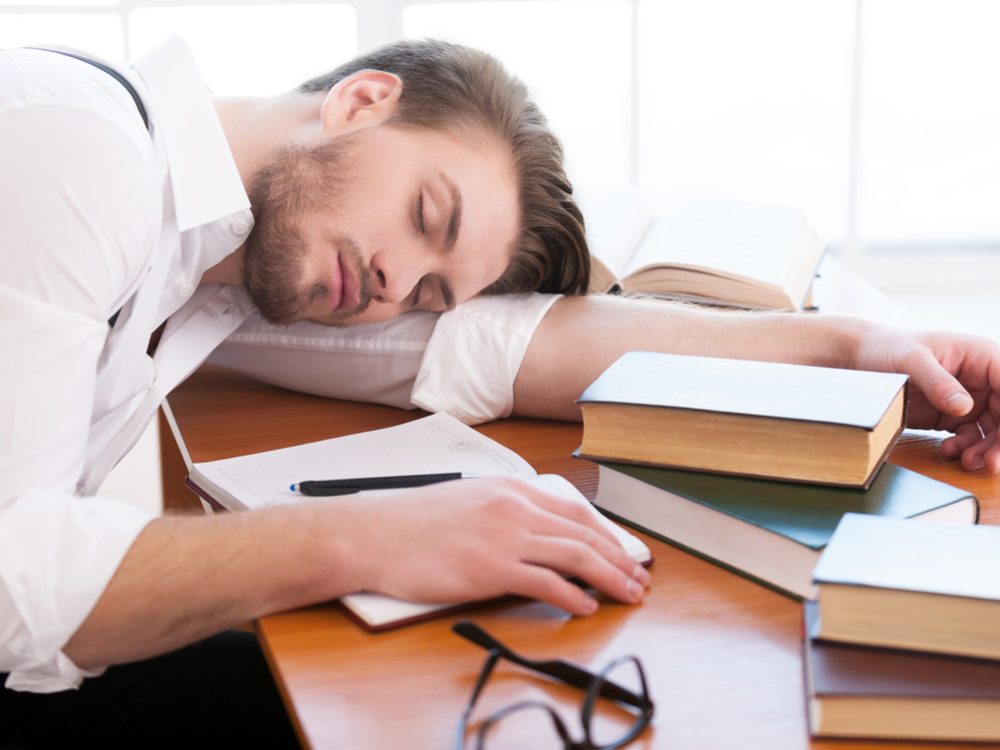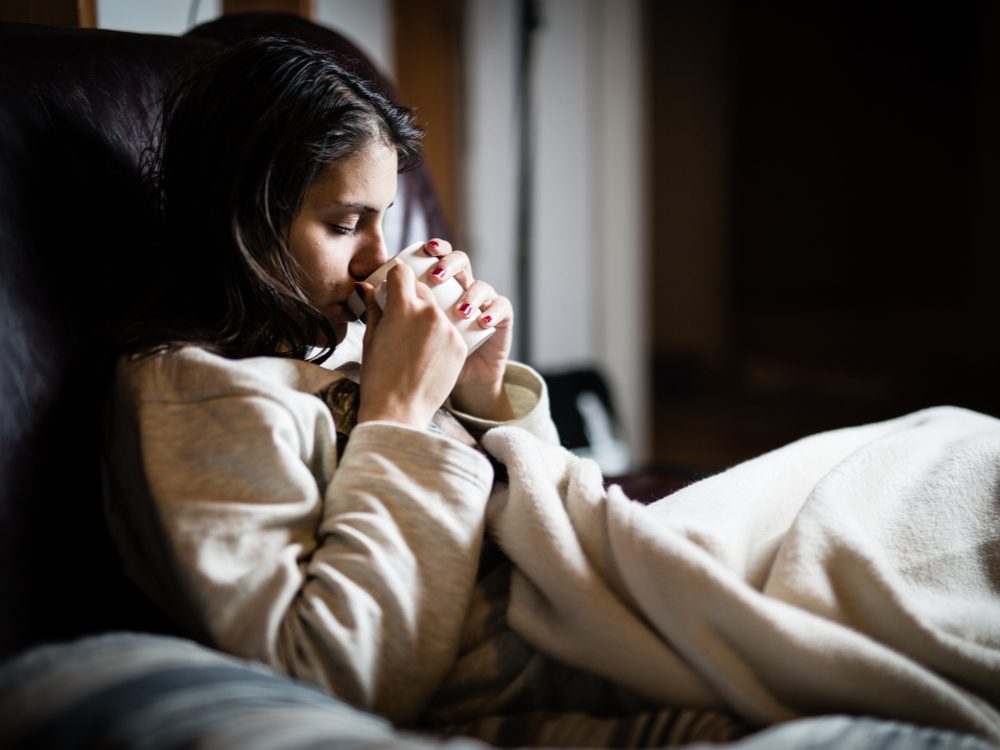
Suffering From a Lack of Sleep?
A lack of sleep can make any day a chore. After hours of tossing and turning, surviving the day ahead feels like a tall order. Your initial instinct might be to reach for a vat of coffee. This may pick you up temporarily, but remember that caffeine could negatively affect your quality of sleep up to 16 hours later. (Be sure to read up on all of The Pros and Cons of Coffee, According to Science.) Feel free to grab a cup, but be reasonable in your consumption so as not to set yourself up for a second rough night. Here are some better ways to survive a bad night’s sleep all through the day.
Bonus: If You Keep on Waking Up in the Middle of the Night, Your Brain Is in Trouble.

Waking Up Tired
“The best thing you can do is just hit the ground running,” says Neil Stanley, a member of the European Sleep Research Society. “You’re going to feel some sleep inertia [otherwise known as grogginess and disorientation] for a while, but don’t let that frame your day. Open the blinds and get some daylight so your body knows it’s time to be awake, or step out for some fresh air.” (Do you tend to get up on the wrong side of bed? Check out 6 Ways to Become a Morning Person, According to Science.)
Physical activity, such as a brisk walk, could also give you an energy boost. (Here are 13 More Easy Ways to Boost Your Energy.) If you’re engaging in more active exercise, however, do it at least three hours prior to bedtime so your body has a chance to cool down before your next attempt at getting some shut-eye.
It turns out There’s a Scientific Reason You Always Sleep Under Blankets—Even When It’s Hot!

Afternoon Drowsiness
If you’re struggling from a lack of sleep when the afternoon rolls around, a short snooze could help you over the hump. The ideal nap is approximately 20 minutes in length—longer ones put you at risk of entering, and then interrupting, deep-stage sleep, causing you to feel even fuzzier than before you took a break. (Don’t be too concerned about whether or not you actually doze off: in a study from the sleep research centre of Loughborough University in Britain, fatigued people who had consumed 200 milligrams of coffee (equivalent to two cups) and then laid their heads down and rested without sleeping for 15 minutes still reaped benefits. (Here’s How Much Sleep You Really Need, According to Science.)

Winding Down At Night
Before bed, unwind with a relaxing activity such as reading, meditation or listening to quiet music. If you’re feeling worried, try putting those concerns aside by writing them down and telling yourself they can always wait until tomorrow. Above all, don’t stress about your lack of sleep from the previous night, which won’t cause any long-term problems—unless you let it propel you into a cycle of sleeplessness caused by anxiety over insomnia. Instead, lie down, close your eyes and allow your mind to wander. A night or two of superior slumber will have you back to normal in no time.
Still tossing and turning at night? Be sure to check out 12 Secrets to a Deeper Sleep.